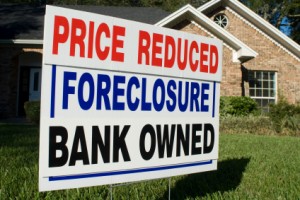Senate Bill No. 321 is aptly referred to as the Homeowner’s Bill of Rights. As its name implies, this new law reshapes homeowners’ rights in foreclosure. SB 321 provides that homeowners in the State of Nevada “deserve better consumer protections and fair and honest treatment in the servicing of mortgage loans in default.” The major changes in SB 321 include, most significantly, additional requirements for the foreclosure of owner-occupied housing securing a residential mortgage loan. (Most of SB 321 applies to foreclosures initiated with a Notice of Default recorded on or after October 1, 2013.) Some of the specific amendments to Nevada law set forth in SB 321 are:
1) Nevada Foreclosure Mediation must be made available for homeowners in judicial foreclosure (foreclosure conducted through the court);
2) In conjunction with the foreclosure, servicers/lenders must provide the homeowner with: (a) a statement for service members and service members’ dependents; (b) a summary of the borrower’s account, including an abundance of information related to the loan, as well contact information to inquire about loan; (c) a statement of facts establishing the right to foreclose; (d) a statement of foreclosure prevention alternatives offered by the servicer, mortgagee, or beneficiary of the deed of trust; and (e) a statement indicating that the borrower may request a copy of the promissory note, deed of trust, any assignment of the mortgage or deed of trust, and the borrower’s payment history for a certain period of time;
3) Required communication must be made with the borrower, or properly attempted, prior to recording the Notice of Default;
4) Prohibition of dual-tracking (forbidding a foreclosure while an application for a foreclosure prevention alternative is pending or while the borrower is current on his or her obligation under a foreclosure prevention alternative, such as a loan modification);
5) Certain timeframes for foreclosure prevention alternative review and specific appeal procedures in the event the borrower is denied foreclosure prevention alternative; and
6) In the event a borrower submits a request for a foreclosure alternative, the mortgage servicer must establish a single point of contact (with certain authority and ability), and provide the borrower with a direct line of communication to that point of contact.
In addition to the above-listed changes, SB 321 changes the foreclosure timeline considerably. SB 321 forces the dismissal of a judicial foreclosure, or the rescission of a Notice of Default, in the following circumstances: (a) the borrower accepts a permanent foreclosure prevention alternative; (b) the notice of sale is not recorded within 9 months after the Notice of Default is recorded; or (c) a foreclosure sale is not conducted within 90 days after a Notice of Sale is recorded. Finally, SB 321 provides specific remedies to homeowners for violations of these new rules.
Kristy Black, Esq.



